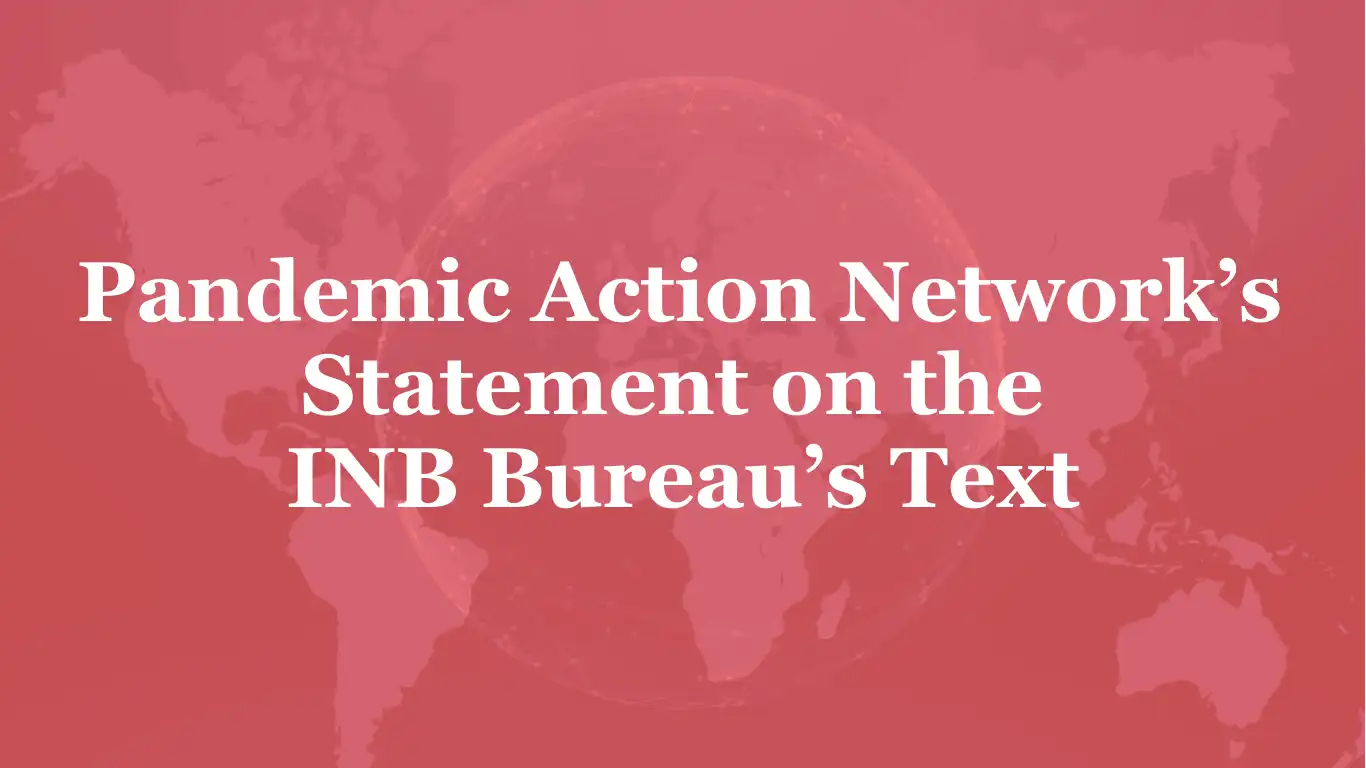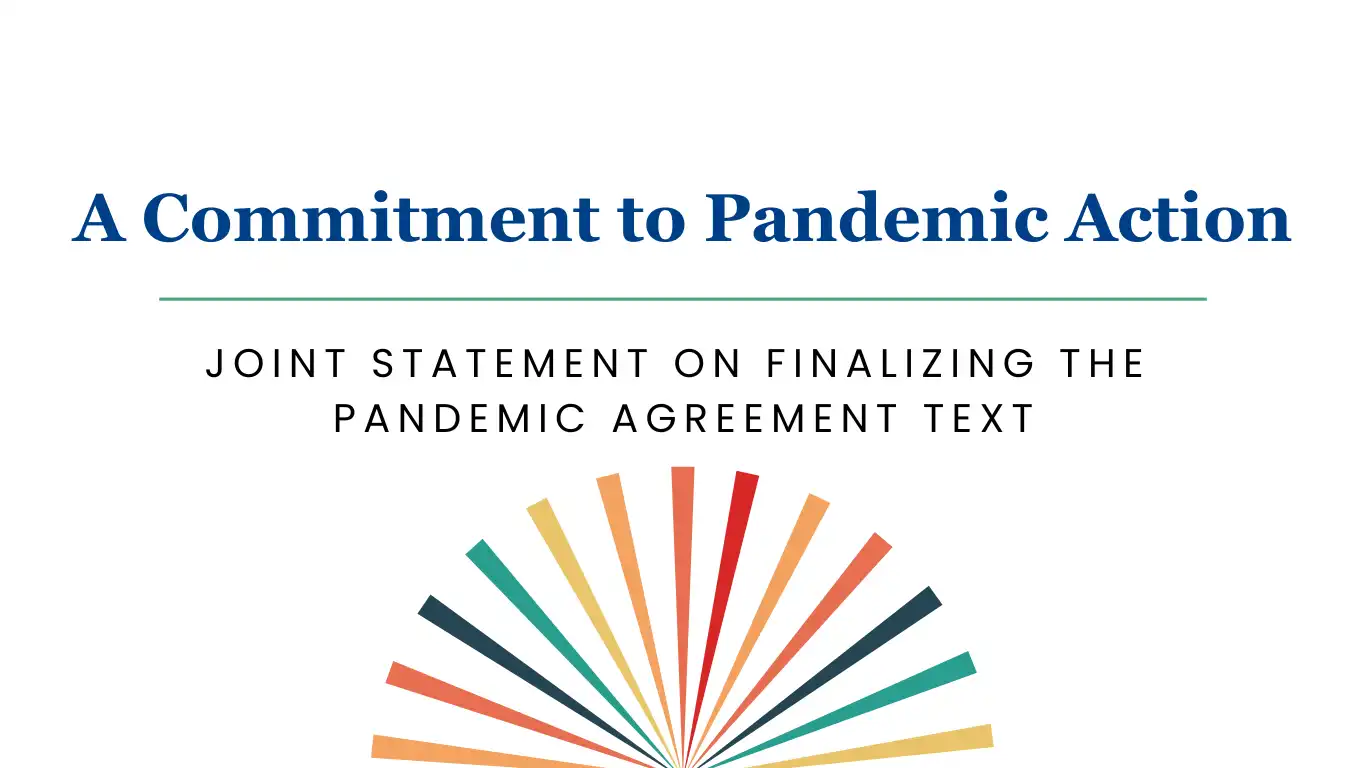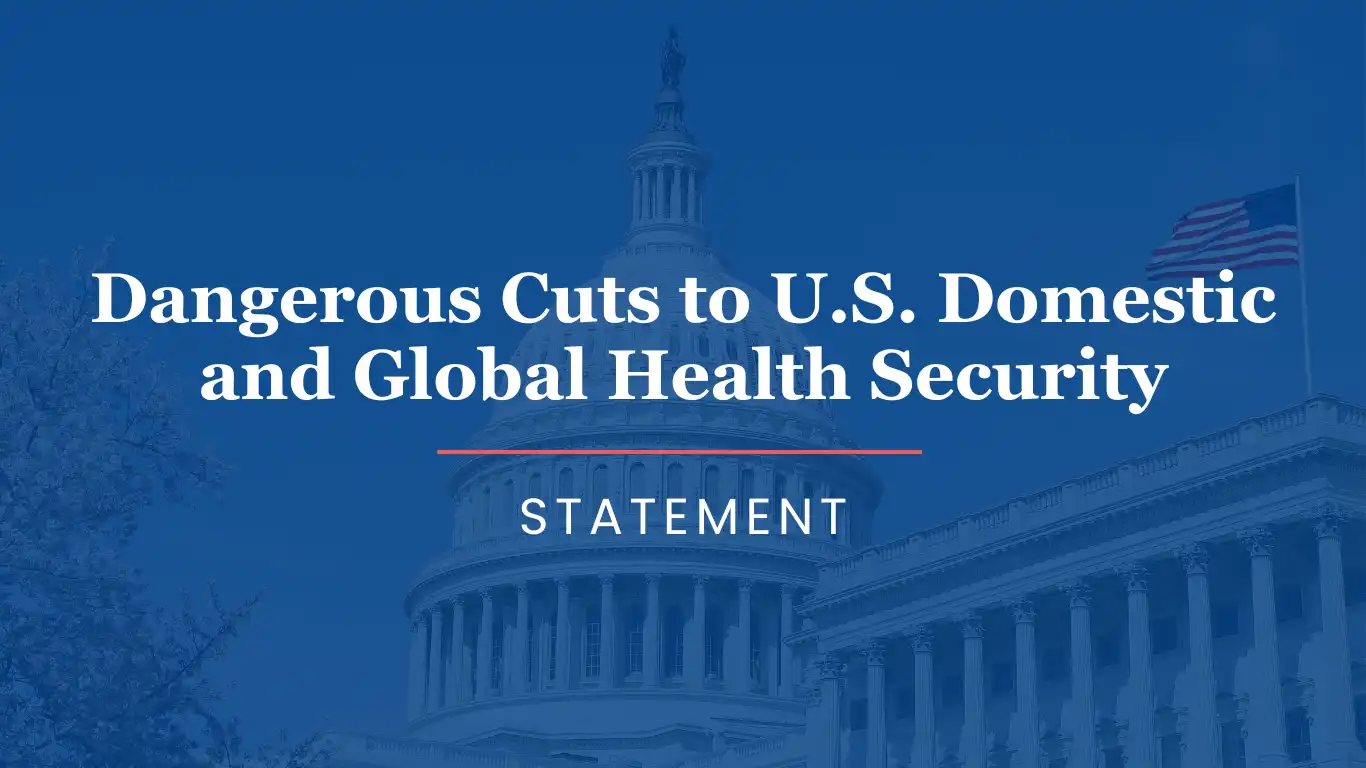Pandemic Action Network’s statement during the resumed 5th meeting (June 12-16) of the Intergovernmental Negotiating Body (INB) to draft and negotiate a World Health Organization convention on pandemic prevention, preparedness, and response (pandemic PPR).
Pandemic Action Network acknowledges the efforts made by all Parties and the INB Bureau to compile the Bureau’s text. It is a good basis to anchor the negotiations and we urge Member States to reference the Compilation text as needed in the negotiations.
We, however, note the following areas that require strengthening in the Bureau’s text:
- Definition of a Pandemic. We welcome the definition of a pandemic in the Bureau’s text and support the consideration of severity — “severe morbidity and high mortality” — and not only speed of spread. We urge defining pandemics as the spread of a pathogen not only globally but also over a very wide area and the inclusion of regional cooperation as a required response. Finally, we urge the inclusion of a gradual warning system focused on detecting and stopping outbreaks when and where they occur before they become pandemics and a system to encourage and reward countries for notifying the World Health Organization of an outbreak and seeking global cooperation.
- Article 4 – Pandemic prevention and public health surveillance. Pandemic Action Network supports the expanded text under Option 4B and urges explicit mention of the International Health Regulations monitoring framework and independent assessments.
- Article 5 – Strengthening pandemic prevention and preparedness through One Health approach. We support Option A and urge that this be strengthened by underscoring the links between climate change and the increasing frequency, scope, and severity of potential pandemics.
- Article 8 – Preparedness monitoring and functional reviews. We urge inclusion of the strongest language possible on periodic assessments and monitoring, with specificity on frequency and monitoring frameworks and tools, with the bias toward improving existing tools that are widely used, such as the Joint External Evaluations and the Global Health Security Index, rather than creating new ones.
- Articles 11 – Co-development and transfer of technology and know-how & Article 12 – Access and benefits sharing. We urge the Parties to consider binding instead of the non-binding language that is pronounced in these parts. Pandemic Action Network further calls on all Parties to consider inclusion of the strongest possible binding language on expanding distributed manufacturing capacity of countermeasures across regions, especially in low- and middle-income countries (LMICs), transparency of intellectual property information, licensing, technology transfer agreements, and access and benefit sharing.
- Article 13 – Supply chain and logistics. Pandemic Action Network supports the establishment of a Global Pandemic Supply Chain and Logistics Network. We urge the drafting group to take a LMIC-led end-to-end ecosystem approach based on collaboration to ensure upstream structural end-to-end equity and break with the past failed model based on pooled procurement. The Network shall establish regional and sub-regional R&D hubs working collectively with new technologies without intellectual property restraints, and engage stakeholders that will use these tools early in the R&D process. Finally, access will only be possible if it is enabled by a reliable surge response financing mechanism that is ready to disburse rapidly in the event of a pandemic, and capitalized by additional, reliable funding.
- Article 19 – Financing. We reiterate our previous calls for the text to explicitly commit Member States to share in the burden of tackling pandemics as a shared global challenge, by contributing and ensuring full and sustainable financing of the Pandemic Fund to reach the US$10.5 billion annual financing target before creation of any new fund for pandemic accord implementation. The Pandemic Fund is the new global financing mechanism established to support LMICs to bolster pandemic prevention, preparedness, and response. Pandemic Action Network also supports inclusion in Option A language on debt swaps or other debt relief measures linked to investments in pandemic PPR. Many LMICs suffer debt stress which impedes their ability to invest in strengthening and building resilient health systems despite their vulnerabilities to pandemic threats.
- Article 20 – Conference of the Parties (COP). We urge that the Conference of Parties be instructed to convene on an annual basis, as is the case with the climate COP, given the growing threat of pandemics to humanity. The COP should serve to elevate and sustain pandemic PPR on the global political agenda, and drive urgency, action and accountability. Regarding accountability, we note that this must go beyond the ministries of health and rest at the level of heads of state and government.
In the related articles (22-35) we note the following:
- On composition of the various COP committees, the text should guarantee the committees independence and unfettered access to data,
- Mandate inclusion of representatives from civil society and affected communities, with a diversity of views and expertise,
- The COP Secretariat should be instructed to ensure transparent, inclusive spaces for timely, meaningful engagement with non-state actors.
Pandemic Action Network is aware that the hard work of negotiations begins now with the various options on the table. We encourage all Parties to maintain the focus and commitment demonstrated thus far to produce an instrument that will compel the actions necessary to make COVID-19 the last pandemic.



